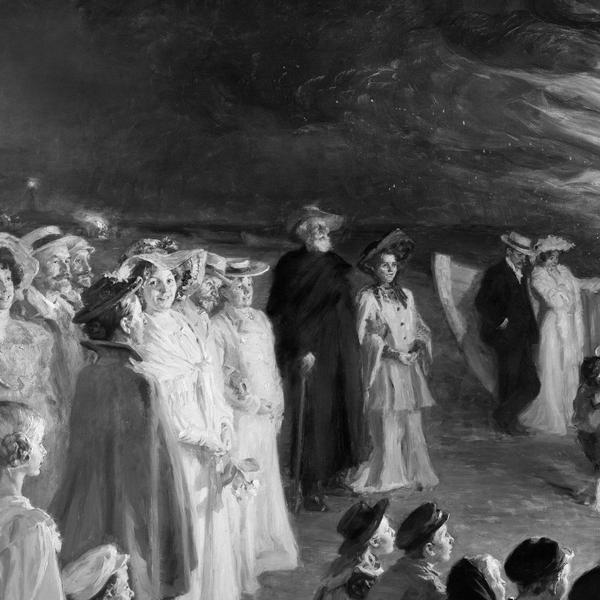"False Idols"

Tricky has found himself in a rather tenuous position as an artist for quite a while now. After bursting onto the music scene in the early days of Massive Attack, and releasing his seminal solo albums Maxinquaye and Pre-Millennium Tension, expectations have always been high for the downtempo Bristol musician. Though with each successive underwhelming effort throughout the late 90′s-early 00′s, fans have routinely turned their collective backs on the trip-hop alchemist, while still holding out for a late-period return to form. So, while the hype surrounding each new Tricky album continues to fade, he’s still faced with those persistent, nagging comparisons to who he was and what he sounded like nearly twenty years ago.
That creative frustration and self-assured confidence burns at the heart of Tricky’s 10th studio album, False Idols, as he tries to put to bed those tiresome artistic parallels while still enhancing and redefining his signature sound. But ultimately, Tricky isn’t concerned with critics and their oft-repeated calls of a career comeback, for in his mind he’s never left nor slipped at all since he first hit the scene — a point he makes abundantly clear on one of the hypnotic standouts of False Idols, the defiantly assertive ‘Nothing’s Changed.’ Tricky’s astute choices for chanteuses this time out are Francesca Belmonte, Nneka, and Fifi Rong, who all lend their dulcet, sultry vocals to nearly all of the best moments on the record, giving these songs a poised, impassioned female perspective that elegantly balances out Tricky’s menacing street leanings.
Of course, with any Tricky album, it’s the haunting, beat-driven atmospherics that ultimately make the songs memorable (or not), and throughout this new record the textured dynamics of these songs pulse with a clean, modern inventiveness, while also echoing the moody tones of his best work. These tension-filled songs are all artfully restrained, while also being vibrantly expressive, crafted to be played in clubs that didn’t exist when Nearly God dropped, while also reminding these insular modern club kids where some of their current hit-makers got their sound from.
After opening the album with a track built around a line borrowed from Patti Smith, “Jesus died for someone’s sins, but not mine,” the rest of the record burns with that subversive attitude, which permeates all of these charged, inspired songs. ‘Nothing Matters’ is a dancefloor jam for the seditious set, while ‘Bonnie & Clyde’ is the stylish getaway song for contemporary cyber criminals.
‘Parenthesis,’ which samples the vocals of the Antlers’ Peter Silberman and audaciously reworks their song of the same name, is simply as sinister and banging as anything Tricky has done in years, suggesting confidently that there hasn’t been a break in the long story of his career nor any need for any added afterthoughts or appendages to demarcate his creative output.
The rhythmic, soulful ‘Valentine’ lifts a familiar Chet Baker riff, but constructs a wistful tale of loneliness around it, giving it an urban edge that entirely transforms the warm sentiments of the original. But it’s the effervescent pulse of ‘Nothing’s Changed,’ which forms the boastful centerpiece of the record, whether you get drawn in by Belmonte singing tenderly about a relationship or Tricky making an unruffled statement about his career — either way, it works, and gives the second half of the record an unbridled spirit to build off of.
After Rong provides a plaintive, stirring look back on ‘If Only I Knew,’ a funky Prince-like guitar riff launches the dynamic swing of ‘Is That Your Life,’ another wistful, wise reflection on some poor choices that the subject thankfully learned to outgrow. The engrossing churn of ‘Tribal Drums’ simply soars, with its percipient warning of ‘Evil come and evil go’ ringing true to these modern times, especially for the people mentioned in the song who chose to stay home and watch TV for their entertainment. There’s no safety to be found there, Tricky is cautioning.
‘We Don’t Die’ is a saturnine song for the survivors, artistic or otherwise, who find their way through any of life’s darker moments. But that moving track is followed by the albums glaring misstep, the unabashedly twee ‘Chinese Interlude,’ with Tricky perhaps trying to tap into Serge Gainsbourg’s sensual French excursions with Jane Birkin and Brigitte Bardot (who also famously recorded a song called ‘Bonnie and Clyde’ together). But it never approaches that type of originality, and just ends up serving as a meaningless diversion on an otherwise stellar album.
The record snaps back to life with the ominous, grungy bass line that courses at the heart of ‘Does It,’ which calls to action all those who are idly watching the world deteriorate right outside their doors, but chose to do nothing about it, with a “swift decline” awaiting all of us as a reward/punishment for our collective inaction. Tricky takes over lead vocals for the final three mercurial songs on the album, with ‘I’m Ready’ echoing the temperamental cadence of ‘Overcome’ (and ‘Karmacoma’), and the beat of ‘Hey Love’ is reminiscent of Burial’s London-at-night sound, with Tricky singing about intimacy over the top (it doesn’t quite work, sadly). But False Idols ends with the grand, rightfully egotistic musical statement ‘Passion Of The Christ,’ which finds Tricky not only brazenly standing up to his imposing musical shadow at long last, but trying his damndest to finally tower over it once and for all.
Get the Best Fit take on the week in music direct to your inbox every Friday

Taylor Swift
The Tortured Poets Department

Chanel Beads
Your Day Will Come

Lucy Rose
This Ain't The Way You Go Out





